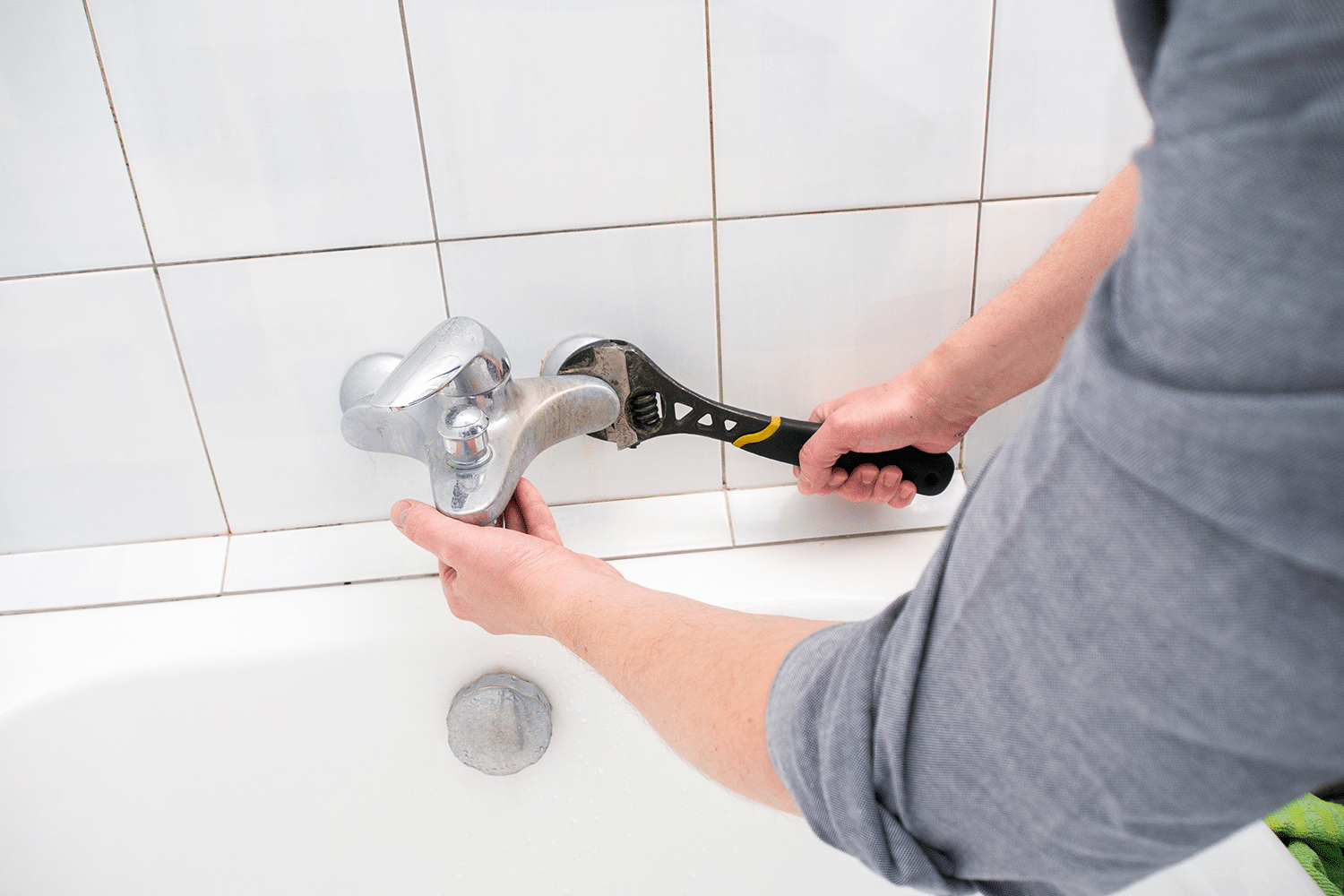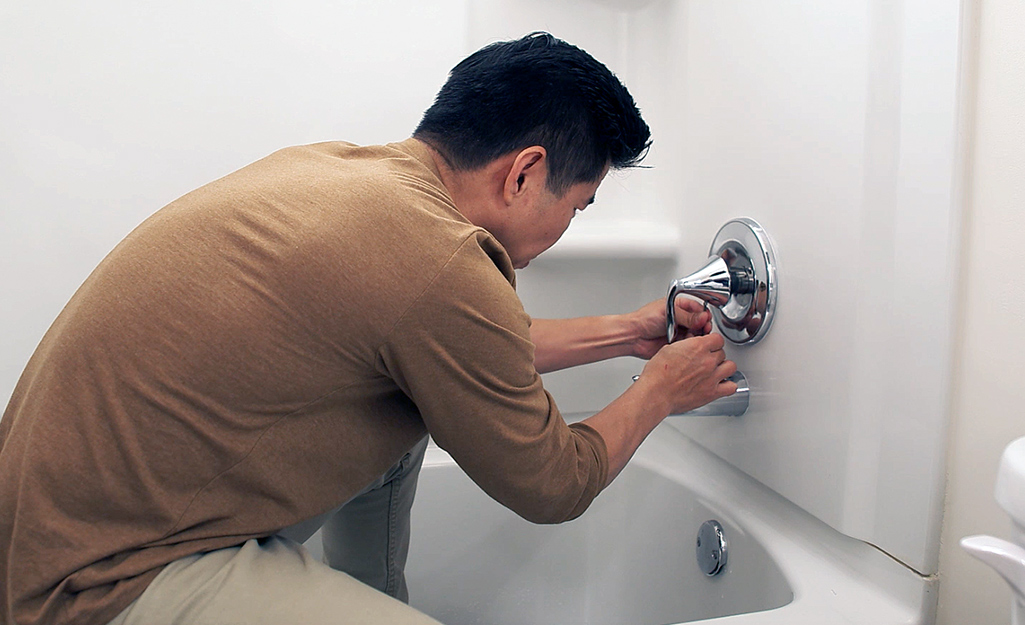Learning the Relevance of Correcting a Dripping Faucet
Learning the Relevance of Correcting a Dripping Faucet
Blog Article
Do you find yourself searching for advise involving How to Fix a Dripping or Leaky Faucet ?

Leaking taps may feel like a minor hassle, but their effect exceeds just the nuisance of the audio. From drainage to incurring unnecessary monetary costs and health risks, overlooking a leaking tap can cause numerous effects. In this article, we'll look into why it's critical to address this usual house concern immediately and properly.
Wastefulness of Water
Ecological Effect
Trickling taps add substantially to water waste. According to the Environmental Protection Agency (EPA), a single faucet leaking at one drip per second can squander more than 3,000 gallons of water per year. This not just stress water sources yet likewise influences ecosystems and wildlife dependent on them.
Financial Costs
Increased Water Costs
Past the environmental influence, leaking faucets can blow up water bills significantly. The built up wastefulness in time equates into greater utility expenses, which can have been stayed clear of with prompt fixings.
Potential Building Damages
In addition, extended dripping can result in harm to fixtures and surface areas surrounding the faucet. Water build-up can cause staining, deterioration, and also architectural concerns if left ignored, leading to extra repair work prices.
Wellness Concerns
Mold And Mildew and Mold Development
The constant presence of moisture from a leaking tap develops an optimal environment for mold and mildew growth. These fungi not just endanger interior air top quality yet also pose wellness dangers, especially for individuals with breathing conditions or allergies.
Waterborne Diseases
Stationary water in dripping taps can come to be a breeding place for bacteria and various other pathogens, increasing the danger of waterborne illness. Pollutants such as Legionella bacteria flourish in stationary water, possibly causing significant diseases when ingested or inhaled.
Do it yourself vs. Professional Repair work
Advantages and disadvantages of DIY Repair Service
While some may try to take care of a leaking faucet themselves, do it yourself repair work come with their very own set of difficulties. Without appropriate understanding and devices, DIY attempts can intensify the issue or result in insufficient fixings, extending the problem.
Advantages of Working With a Professional Plumber
Employing a professional plumber makes certain that the underlying reason for the trickling faucet is addressed successfully. Plumbings have the know-how and devices to detect and repair tap concerns efficiently, conserving time and lessening the risk of more damages.
Step-by-Step Guide to Fixing a Dripping Tap
Tools Called for
Prior to attempting to repair a trickling faucet, collect the required tools, consisting of a flexible wrench, screwdrivers, replacement parts (such as washing machines or cartridges), and plumber's tape.
Usual Faucet Issues and Their Solutions
Determine the sort of faucet and the particular issue causing the drip. Usual issues consist of worn-out washing machines, corroded valve seats, or malfunctioning O-rings. Describe producer instructions or online tutorials for detailed assistance on repair services.
Preventive Measures
Regular Maintenance Tips
To prevent trickling taps, do regular upkeep such as cleaning up aerators, evaluating for leakages, and replacing worn-out components immediately. In addition, take into consideration setting up water-saving devices or upgrading to a lot more reliable components.
Importance of Prompt Repairs
Attending to leaking taps as quickly as they're seen prevents additional water waste and prospective damage, eventually saving both water and money in the long run.
Effect On Residential Or Commercial Property Worth
Perception of Well-Maintained Residential Property
Keeping a home in good condition, consisting of dealing with maintenance problems like leaking faucets, boosts its regarded worth and worth among prospective purchasers or occupants.
Impact on Resale Value
Features with well-kept plumbing fixtures, including faucets, command greater resale worths in the realty market. Resolving dripping faucets can contribute to a favorable perception throughout home inspections and arrangements.
Ecological Duty
Specific Contribution to Preservation
Taking obligation for taking care of leaking faucets aligns with broader initiatives toward water preservation and environmental sustainability. Every person's actions collectively make a considerable impact on maintaining precious sources.
Sustainable Living Practices
By focusing on prompt repair services and embracing water-saving routines, people add to sustainable living methods that profit both existing and future generations.
Conclusion
Resolving a dripping tap exceeds simple ease; it's a necessary action toward saving water, reducing economic costs, and guarding health and residential or commercial property. Whether via DIY repair services or professional assistance, taking action to take care of leaking faucets is a small yet impactful method to promote accountable stewardship of resources and add to a healthier, much more sustainable future.
How to Fix a Leaky Faucet: Step-by-Step Repair Guide
A leaky faucet may seem like a simple annoyance, but if it's not fixed promptly, that leak could cost hundreds to potentially thousands. From water damage to mold, mildew, and high water bills, even a tiny leak can be catastrophic if left unattended. Damage like this can even affect the overall value of your home, so it's important to take the right approach for leaky faucet repair. You may need the help of a plumber in some cases, but we've got a few tips you can try on how to fix a leaky faucet before calling the pros.
Four Faucet Types
When you're learning how to fix a leaky faucet, the first step is knowing what kind of faucet you're working with! There are four common types.
Cartridge Faucets
Cartridge faucets come in one- or two-handled varieties. In one-handled cartridge faucets, hot and cold water combines in a single cartridge. In the two-handled versions, hot and cold water are controlled separately and mixed in the faucet.
Ball Faucets
Ball faucets have a single lever you push up and down to adjust the pressure and rotate to change the temperature. A slotted metal ball controls the amount of water allowed into the spout.
Compression Washer Faucets
They're the oldest type of faucet, but they're still used in many homes — especially older ones. Compression faucets have two separate handles that, when turned, raise or lower the washer that seals a water valve. This valve stops water from flowing through the faucet when it is turned off.
Disc Faucets
Disc faucets rarely need to be repaired due to their maintenance-free design. The water flow is controlled by two discs — the upper one raises and lowers against a fixed lower disc, creating a watertight seal. If your disc faucet starts leaking, you may need to replace the seals or clean residue buildup from the inlets.
Fixing a Leaky Faucet
Step 1: Turn Off the Water
Whether you're learning how to fix a leaky bathtub faucet or how to fix a leaky kitchen faucet, always turn off the water supply to your working area when you're fixing a leak. The last thing you want is a flood added to your list of things to fix.
Look for the shutoff valves below your sink or around the tub and turn them clockwise to stop the water flow. If your faucet doesn't have shutoff valves, you may need to turn off the water for the whole house. Check to make sure it's off by turning the faucet on. If nothing comes out, you're ready to start the repair.
Step 2: Take Apart the Faucet
How you disassemble your faucet depends on the type of fixture you have. You can use a flathead screwdriver to remove the caps on top of the handle or handles for cartridge and compression faucets. Inside, you should see handle screws. Unscrew these with a screwdriver to remove the handle.
Disc- and ball-style faucets will typically have an inlet screw near the handle, and removing that will reveal the interior of the faucet.
Detach the Valve Stem
For cartridge- and compression-style faucets, you'll see the inner valve stem or cartridge once you remove the faucet handles. If you have a compression faucet, unscrew the brass valve stem. If you have a cartridge faucet, pull out the cartridge. If your cartridge has been in place for a while, it may require some tools or extra force to remove it due to mineral deposits.
Examine and Replace Parts
Once you've removed the parts, check them out to confirm what needs to be replaced. You may see corroded rubber washers, O-rings, stems, or cartridges. On a ball-style faucet, check the seats and springs for damage.
If you need to repair a leaky disc faucet, check the inlet and seals on the lower disc.
Once you determine what parts must be replaced, visit your local hardware store. Bring the damaged parts with you to ensure you can purchase the correct components to replace them.
Clean Valves and Faucet Cavity
If you've removed a stem or cartridge, you may notice mineral buildup in the faucet's threads. Use white vinegar to clean the valve seat by soaking it for a few minutes, then scrub it away with a soft toothbrush and rinse with warm water. You can also clean the interior of the faucet in the same way.
Reassemble the Faucet
Once your faucet is cleaned and the required parts have been replaced, it's time to reassemble it. Put the pieces back together and slowly turn the water supply back on. Doing this slowly is crucial because too much initial water pressure can damage the new hardware you've just installed.
https://homewarranty.firstam.com/blog/how-to-fix-leaky-faucet

As a keen reader on Leaky Faucets: Why They Happen & What to Do About Them, I assumed sharing that excerpt was sensible. If you appreciated our article if you please do not forget to share it. We treasure your readership.
Report this page